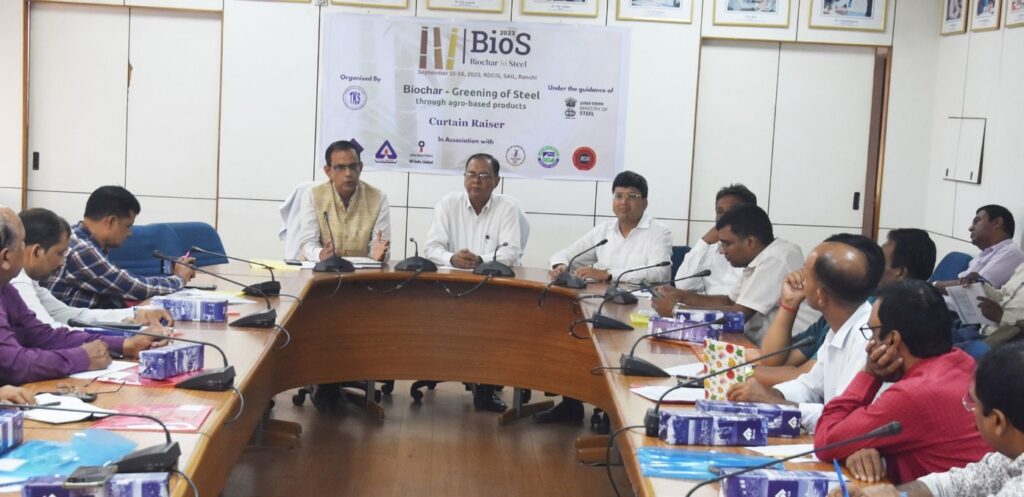Ranchi: On Wednesday a curtain raiser event of the national seminar “BIOS 2023” was organized at SAIL’s ‘Research and Development Centre’, Ispat Bhawan in Ranchi.
A Seminar in this regard to take place on Friday in the auditorium of the RDCIS, SAIL. The media was informed about the outline of this seminar in a press conference graced and addressed by Nirbhik Banerjee, Executive Director (Incharge) from R&D, SAIL, Mr. Sandeep Kumar Kar, Executive Director, R&D and Dr. Sujoy Rakshit from ICAR (IIAB). At the beginning Mr. Ujjwal Bhaskar, Chief of Communications, SAIL, Ranchi welcomed all the media persons.
BIOS 2023 will be inaugurated by Nagendra Nath Sinha, Steel Secretary, Government of India on September 15. Top officials from SAIL and organizing organizations will participate in it. Leading scientists and environmentalists of India will participate in the technical sessions in which SAIL, ICAR, IIT, IIM, J.N.U., agriculture related institutions, producers of biofuels and their consumers.
Mr. Banerjee and Mr. Kar of SAIL told that steel plants contribute 9% of the total greenhouse gases in the environment, which is very high. Keeping in view the pressure of Paris Agreement and COP26 in the world, India has set a target of zero carbon emissions till the year 2070 and to reach which biofuel is indispensable, because carbon emissions from biofuels are very less.
With Coke these biofuels can be partially charged into the blast furnace and there shall be no need for any modification in the design of the blast furnace, nor will any additional cost be incurred. Apart from this, biofuel can also be used in place of oil in the furnace. Dr. Rakshit explained how we can convert rice straw, which pollutes the environment, into biofuel with the right technology. In this seminar Bamboo as a Biofuel will be discussed threadbare.
But there are many difficult challenges in this journey which all the scientists of the country will have to face together. Among these challenges, the first is to almost double the calorific value of biofuel, standardize its diversity, increase its bulk density, make arrangements for its collection and transfer, etc. Currently, the Government of India is planning to process it near the farmers’ fields, which will increase local employment and also reduce the cost of transportation.
The importance of this seminar has further increased with the formation of Global BioFuel Alliance (GBA) in G20. The organizers of this seminar will have to redouble their efforts as key stakeholders in the national canvass continuously.


